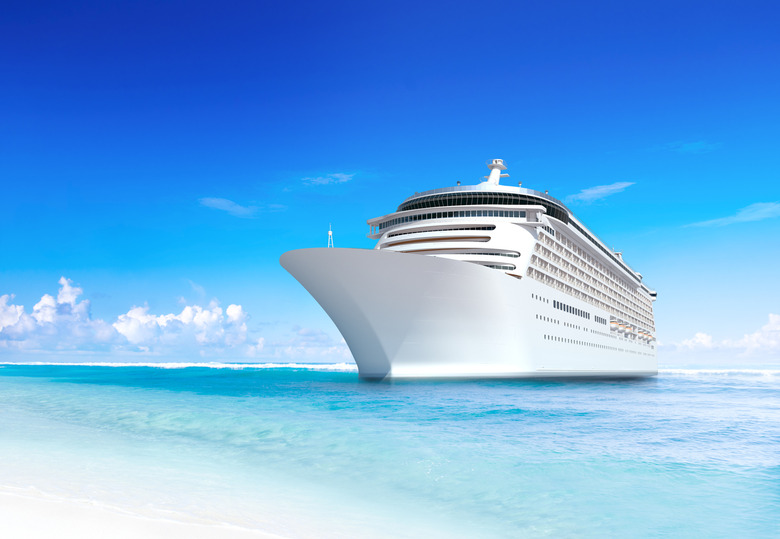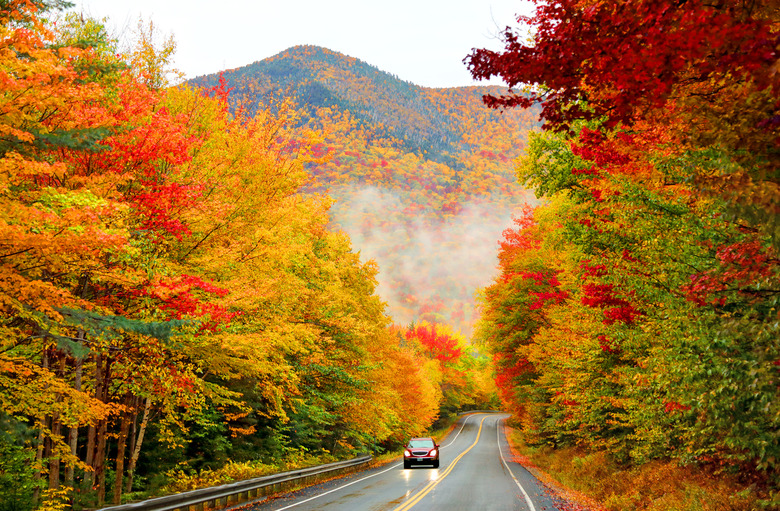Shoulder Season Travel Secrets You Never Knew
Traveling will always involve some degree of stress, from having to book your flights to making sure you've packed everything you need. The less stress you have, however, the more fun your vacation will be. That's why choosing to visit a destination in its shoulder season is a great move; with less crowds and more savings, you can truly relax on your vacation and get the best out of it.
While most people know that traveling in the shoulder season can mean a more affordable European holiday or a more tolerable, kid-free cruise, there are many other perks to a vacation nestled between the intense high season or the lowkey off-season of a tourist destination. From dealing with the locals to navigating restaurants, there's quite a bit that can change when a city isn't completely inundated with tourists. For savvy travelers looking for a great value vacation, here are some shoulder travel secrets you never knew.
Cruises Are Even Cheaper
Cruises often tend to have great promotions and deals, but shoulder season can make a cruise vacation even more affordable. When it's not peak cruise season, cruise lines are usually looking to fill up their ships causing prices to drop, particularly as it gets closer to the sailing date. Price reductions, packages with discounted airfare, and offers for onboard credit, hotel stays and other booking specials see a rise, as do offers for perks like free Wi-Fi, drinks packages and more. One big reason for the price drop is also the unpredictability in weather; itineraries can change during shoulder season, so make sure you're flexible about your destinations.
It’s the Best Time to Use Your Miles
You can save a lot of money on flight tickets using your airline miles, particularly during shoulder season. If you're planning a trip somewhere right before or after its peak season, you'll typically find that there's more availability of tickets for purchase using your frequent flier miles, saving you even more on an already cheaper vacation.
Locals Tend to Be Friendlier
Even if you are always on your best behavior while traveling, it's understandable for the locals to have a bit of tourist fatigue during the high season. Visit a city when it's not crawling with out-of-towners, and you'll find that the locals are far friendlier and more willing to help you out.
Menu Prices Might Go Down
Just as prices for flights, hotels, and attractions go down with the tourism crowds, so do the prices at restaurants in many tourist-friendly cities. Eating out can be expensive, so it's a great way to save money on your restaurant bills if you decide to travel when there are less customers overall.
More Room to Negotiate
Because there isn't as much business during the shoulder season, you'll find that you may be able to negotiate in all sorts of situations. Whether you're looking for a better deal on your hotel stay, hoping to get an upgrade on a flight, or bartering with a local vendor, whoever you're dealing with is more likely to be lenient if they're a bit more desperate for your business.
Photos Come Out Better
One great aspect many people don't realize about traveling during shoulder season is that thinner crowds mean nicer photos. Your budget-friendly vacation is also much more Instagrammable when you don't have tourists ruining your photos of landmarks and landscapes.
Reservations Aren’t Always Necessary
One of the biggest benefits of not having to deal with the tourist hordes is the fact that everything is far more available. You may not have to worry about getting a table at a popular tourist restaurant or having to book ahead to make sure you see certain landmarks. You can even be spontaneous and wait until you get to your destination to find a last-minute deal at a local hotel.
Shoulder Season Varies
In most places, particularly in North America and Europe, fall is the shoulder season for travel. However, shoulder season is not uniform around the world. For example, some American east coast towns are actually at their peak when fall foliage is the main attraction. Shoulder season in destinations like Australia and South Africa is in the summer – or rather, the Northern Hemisphere's summer, as it's actually winter there.
Visit the Caribbean Right After Hurricane Season
Winter is usually peak season in the Caribbean, and hurricane season is, for obvious reasons, the low point for tourism. If you go right after hurricane season, however, you'll hit the sweet spot. The bad weather is gone, the tourist crowds haven't hit yet, and you'll find all sorts of amazing deals for cruises and the Caribbean's top all-inclusive resorts.









